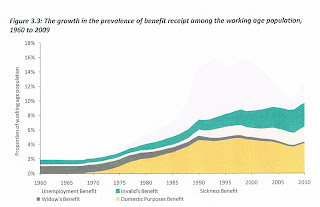"Porirua Mayor Nick Leggett has hit out at Government suggestions that councils should stick to core services such as sewage , roads and libraries. Porirua City Council's plan, which outlines spending for the next ten years includes a vision of a poverty-free city, and Mr Leggett insists it has a "moral obligation" to stamp out child poverty."
A "moral obligation" no less. You, the ratepayer, have a moral obligation to ensure that other people's children are free from poverty. It's not enough that central government imposes this fatuous claim on you, he wants to duplicate it. On the upside, when the imposition becomes so localised you find yourself having to share your wages with the large family next door the absurdity and outrageousness of the proposition becomes evident.
And what motivates Mr Leggett?
"The Inside Child Poverty: A Special Report documentary which screened on television last year, spurred Mr Leggett's vision for the council to step up."
Influenced by sensationalist propaganda which I wrote about here and here.
Porirua ratepayers will no doubt be delighted with this news.








